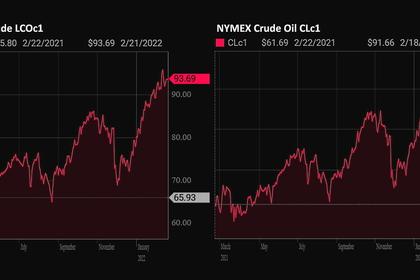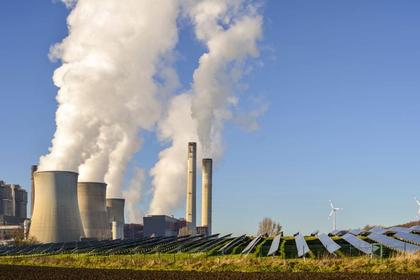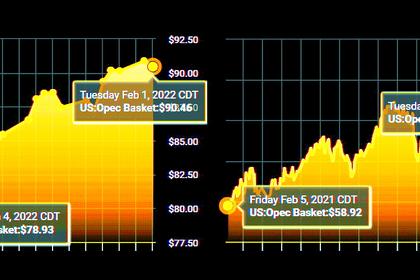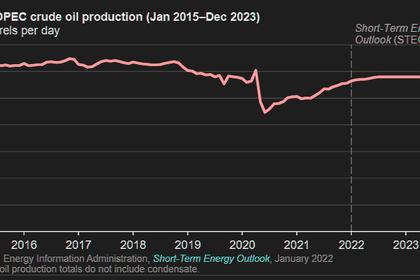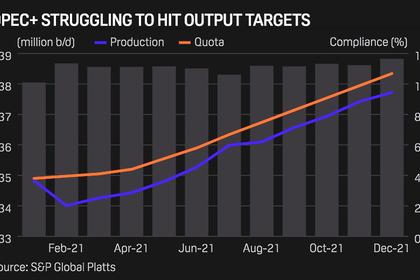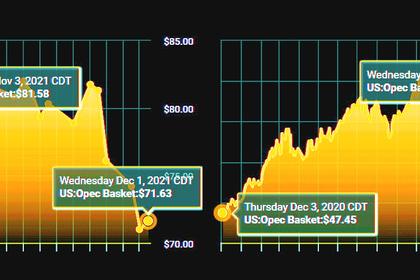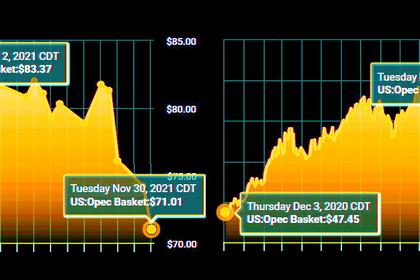
OPEC+ RUSSIA STABILISATION
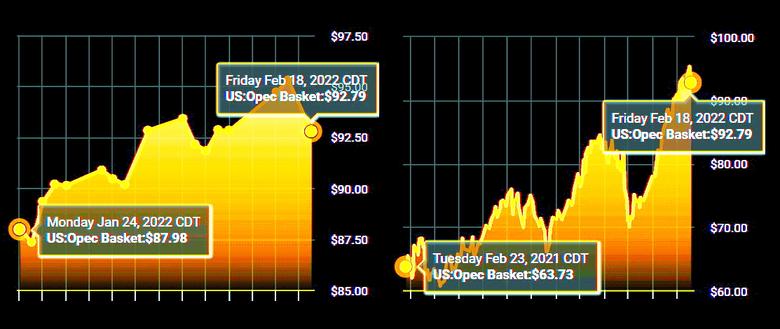
PLATTS- 21 Feb 2022 - OPEC's Arab contingent said the group is united on sticking to its current supply pact, even as oil prices continue to trade close to $100/b.
Speaking at the International Petroleum Technology Conference in Riyadh, ministers from Saudi Arabia, Iraq, the UAE and Kuwait said geopolitical tensions, along with industry underinvestment driven in large part by climate activists, were to blame for high oil prices and that there was no evidence that OPEC+ countries were causing a supply crunch.
"We are on a journey to attain balance in the market by gradually increasing our production and we think that plan is pertaining to the supply and demand. Anything outside that is not going to be our job," UAE energy minister Suhail al-Mazrouei told the conference late Feb. 20.
He said escalating tensions between Russia and the West over Ukraine had added a geopolitical risk premium to prices that had distorted the market.
"We are all hoping for de-escalation. We were hoping that we will see the prices go back to [reflecting] supply and demand only and I think that our plan has been working," Mazrouei added. "And I don't believe that the market is undersupplied currently. It's the other factors that are outside our hands, which are impacting the market."
OPEC, along with 10 allies led by Russia, has been gradually easing back production quotas it implemented at the start of the coronavirus pandemic by 400,000 b/d each month, aiming to return to pre-pandemic output levels by late 2022.
The OPEC+ alliance is next scheduled to meet March 2 to finalize April output levels, and is already under ratcheting pressure from its key customers, including the US and India to more aggressively raise production. So far, however, the alliance has not deviated from its plan.
Iraqi oil minister Ihsan Ismaael also said the current agreement could keep the market in balance "for the benefit of consumers and producers".
Platts assessed Dated Brent at $97.35/b on Feb. 18, after the benchmark -- used to price more than half of the world's crude -- breached $100/b for the first time since September 2014 earlier in the week.
Saudi energy minister Prince Abdulaziz bin Salman said the OPEC+ group's monthly meetings were a demonstration of its commitment to "transparency, managing dynamics and unpredictable events."
He also blamed an "investment deficit" and "short-sighted" environmental campaigns against oil and gas investments as factors behind the recent rally in crude prices.
Kuwait, one of OPEC's key producers also pledged to respect the pact.
"The mechanism that was set in this agreement showed to the whole world that we can make sure that we are very sensitive how the market reacts," Mohammed al-Fares, the country's oil minister, said.
"I think that we're going to continue doing what we're doing, and we have to respect that agreement," he added.
-----
Earlier:
